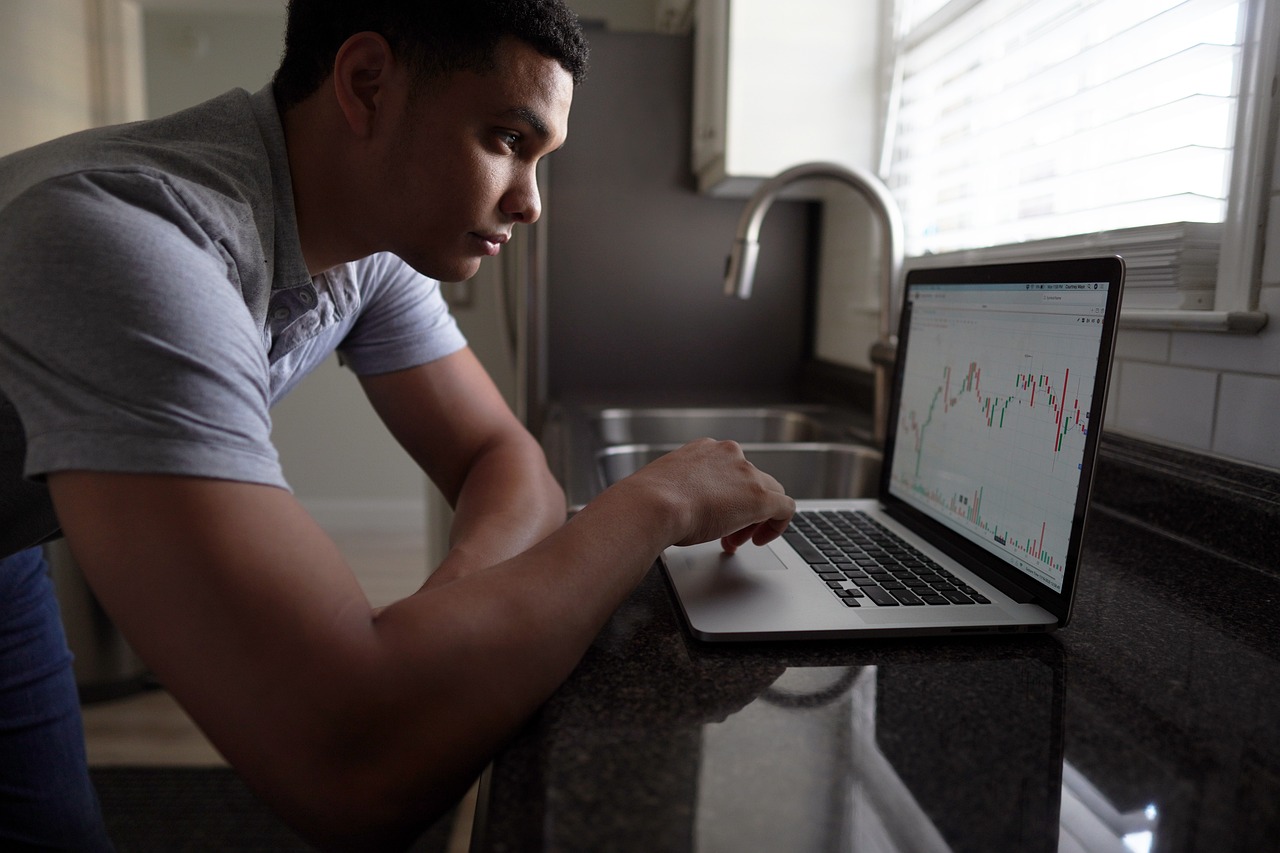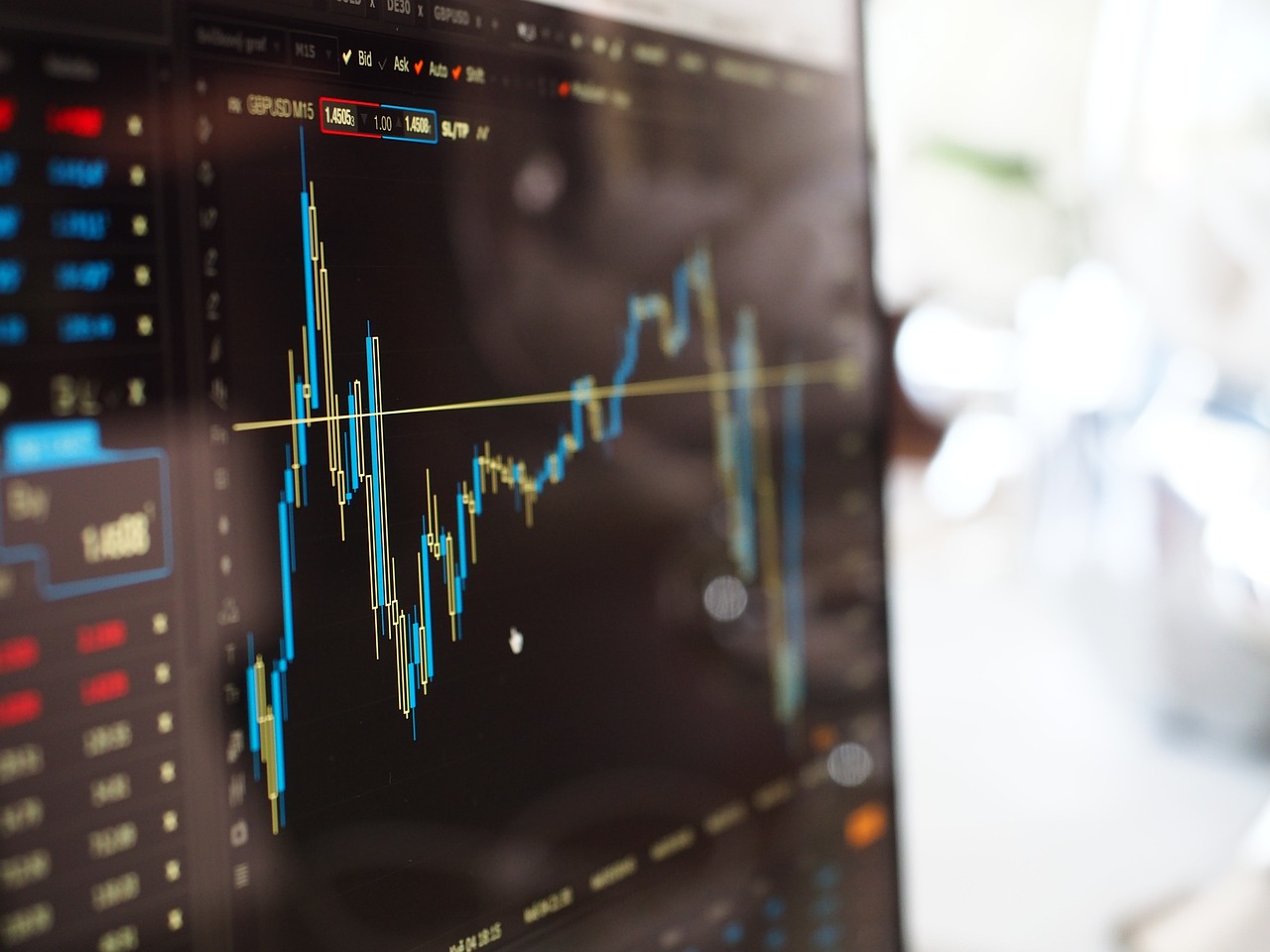How to Engage in Responsible Crypto Trading
In the fast-paced world of cryptocurrency, where fortunes can be made or lost in the blink of an eye, it's vital to engage in responsible trading. This means not just diving headfirst into the market but approaching it with a well-thought-out strategy. Think of trading like sailing a ship; without a compass and a map, you might find yourself lost at sea. Responsible trading involves understanding the market, setting clear goals, managing risks, and continuously learning. So, how do you navigate these turbulent waters? Let's explore the essential strategies and best practices that can help you make informed decisions while minimizing risks and maximizing potential rewards.
Before you even think about trading, it’s crucial to get a handle on the basics. Cryptocurrency isn’t just a buzzword; it’s a revolutionary technology that’s changing the way we think about money. At its core, cryptocurrencies operate on blockchain technology, which is a decentralized ledger that records transactions across many computers. This means that no single entity controls it, making it both secure and transparent.
There are thousands of different cryptocurrencies out there, each with its own unique features. From Bitcoin, the original cryptocurrency, to Ethereum, which allows for smart contracts, understanding the different types of coins and their purposes is essential. Additionally, market dynamics play a significant role in trading decisions. Factors such as supply and demand, market sentiment, and external influences like regulations can dramatically affect prices.
Imagine trying to hit a target without knowing where it is. That’s what trading without goals feels like. Establishing specific, measurable, achievable, relevant, and time-bound (SMART) goals can provide you with a clear direction. For instance, instead of saying, “I want to make money,” you might set a goal like, “I want to achieve a 20% return on my investment within six months.” This clarity can keep you focused and disciplined, especially in a market known for its volatility.
Risk is an inevitable part of trading, but how you manage it can make all the difference. One effective strategy is to set stop-loss orders, which automatically sell your assets when they reach a certain price, protecting your capital from significant losses. Diversification is another key tactic; by spreading your investments across different cryptocurrencies, you can mitigate the impact of a poor-performing asset on your overall portfolio.
Here's a quick look at some common risk management strategies:
- Stop-Loss Orders: Set predetermined prices to sell assets.
- Diversification: Invest in various cryptocurrencies to spread risk.
- Position Sizing: Determine how much to invest in each trade based on your total capital.
In the world of crypto trading, knowledge is power. Conducting thorough research and analysis is vital for making informed decisions. Traders should utilize both fundamental analysis, which looks at the intrinsic value of an asset, and technical analysis, which focuses on price patterns and trends. By combining these methods, you can evaluate market trends and identify potential investment opportunities.
Your trading platform is your gateway to the cryptocurrency market, so choosing wisely is essential. Look for a platform that offers robust security features, competitive fees, and a user-friendly interface. Customer support is also crucial; you want to ensure that help is available when you need it. Here’s a quick comparison of factors to consider:
| Factor | Importance |
|---|---|
| Security Features | High |
| Fees | Medium |
| Available Cryptocurrencies | High |
| Customer Support | Medium |
The cryptocurrency market is constantly evolving, and keeping up with the latest news and trends is crucial. Regularly checking reputable news sources, following market analysts on social media, and participating in online forums can help you stay ahead of the curve. By anticipating changes in the market, you can make timely decisions that enhance your overall trading strategy.
Trading can be an emotional rollercoaster. One moment you’re on top of the world, and the next, you’re facing a significant loss. Maintaining emotional discipline is crucial for success. It’s essential to learn how to manage fear and greed, as these emotions can lead to impulsive decisions. Think of trading like a game of chess; every move should be calculated and strategic, rather than reactive and emotional.
Before you start trading, it’s vital to understand the legal and regulatory landscape surrounding cryptocurrency in your jurisdiction. Laws can vary significantly from one place to another, and being aware of these regulations can help you avoid potential penalties. Always ensure you’re compliant with local laws to protect yourself and your investments.
The crypto market is like a living organism; it’s always changing. Engaging in continuous learning and adapting your strategies based on new information and experiences can significantly improve your trading performance over time. Whether it’s taking online courses, reading books, or attending webinars, the more you learn, the better equipped you’ll be to navigate the complexities of the market.
Q: What is the best cryptocurrency to invest in?
A: There’s no one-size-fits-all answer. It depends on your research, risk tolerance, and investment goals.
Q: How much money do I need to start trading?
A: You can start with a small amount, but it’s essential to only invest what you can afford to lose.
Q: Is crypto trading safe?
A: While there are risks involved, responsible trading practices can help mitigate them significantly.

Understanding Cryptocurrency Basics
Before you jump into the exciting world of cryptocurrency trading, it's essential to have a solid grasp of the basics. Think of it like learning the rules of a game before you start playing. Cryptocurrency is a digital or virtual form of money that uses cryptography for security, making it nearly impossible to counterfeit or double-spend. The most well-known cryptocurrency, Bitcoin, was created in 2009, and since then, thousands of other coins have emerged, each with unique features and purposes.
At the heart of cryptocurrency lies blockchain technology. This is a decentralized ledger that records all transactions across a network of computers. Imagine it as a public library where everyone can see the books (transactions), but no one can alter them without the consensus of the community. This transparency is one of the key advantages of cryptocurrencies, as it builds trust among users.
When discussing cryptocurrencies, it's crucial to understand the different types available. Here’s a brief overview:
- Bitcoin (BTC): The first and most widely recognized cryptocurrency, often referred to as digital gold.
- Altcoins: Any cryptocurrency other than Bitcoin. Examples include Ethereum (ETH), Ripple (XRP), and Litecoin (LTC).
- Stablecoins: Cryptocurrencies pegged to a stable asset, like the US dollar, to reduce volatility. Examples include Tether (USDT) and USD Coin (USDC).
Understanding market dynamics is also vital. The crypto market operates 24/7, which means prices can fluctuate wildly at any time. Factors influencing these price changes include market sentiment, regulatory news, and technological advancements. For instance, a tweet from a well-known figure can send prices soaring or plummeting within minutes!
Finally, it’s important to recognize that while the potential for profit is significant, the risks are equally high. Many traders enter the market with dreams of quick riches, only to find themselves overwhelmed by its volatility. So, before you start trading, take your time to educate yourself about the landscape. The more you know, the better equipped you'll be to navigate this complex world.
Q: What is a cryptocurrency wallet?
A: A cryptocurrency wallet is a digital tool that allows you to store, send, and receive cryptocurrencies. It can be software-based (online or mobile) or hardware-based (physical devices).
Q: How can I buy cryptocurrencies?
A: You can buy cryptocurrencies through exchanges, which allow you to trade traditional currency for digital coins. Some popular exchanges include Coinbase, Binance, and Kraken.
Q: Is cryptocurrency safe to invest in?
A: While investing in cryptocurrency can be lucrative, it also involves significant risks. It's crucial to do thorough research and never invest more than you can afford to lose.

Setting Clear Trading Goals
When it comes to trading in the volatile world of cryptocurrencies, having a clear set of goals is like having a roadmap for a long journey. Without it, you might find yourself lost, wandering through the chaos of price fluctuations and market sentiment. So, what exactly does it mean to set clear trading goals? Well, it's about establishing specific, measurable, achievable, relevant, and time-bound (SMART) objectives that guide your trading decisions and help you stay focused amidst the noise.
Imagine you're a sailor navigating through stormy seas. If you don't have a destination in mind, you'll drift aimlessly, and before you know it, you could end up in uncharted waters. Setting trading goals helps you chart your course. For instance, you might aim to achieve a certain percentage return on your investments within a specific timeframe. This not only gives you something to strive for but also allows you to measure your progress along the way.
Here are a few examples of what your trading goals could look like:
- Financial Goals: Perhaps you want to grow your trading account by 20% over the next six months. This gives you a clear target to work towards.
- Skill Development Goals: Maybe you want to learn about technical analysis and apply it to your trades within three months. This not only boosts your knowledge but also enhances your trading strategy.
- Risk Management Goals: Setting a limit on how much of your capital you're willing to risk on a single trade can protect you from significant losses.
But remember, setting goals is just the first step. The real challenge lies in sticking to them. It's easy to get swept away by the excitement of a bull market or panic during a downturn. This is where discipline comes into play. You need to regularly review your goals and adjust them as necessary, but don't abandon them just because the market takes a turn. Think of your goals as the North Star in your trading universe; they should guide you, even when the skies are cloudy.
Additionally, documenting your goals can be incredibly beneficial. Writing them down not only solidifies your commitment but also allows you to reflect on them periodically. You might consider creating a simple trading journal where you can track your progress, note your successes, and learn from your mistakes. This practice can be a game-changer, helping you stay accountable to yourself and your objectives.
In summary, setting clear trading goals is a foundational step for any trader looking to navigate the unpredictable waters of cryptocurrency trading. By establishing SMART goals, maintaining discipline, and tracking your progress, you can enhance your chances of achieving the success you desire in this exciting yet challenging market.

Risk Management Strategies
When it comes to cryptocurrency trading, risk management isn't just a fancy term thrown around by seasoned traders; it's the lifeline that can keep you afloat in the unpredictable waters of the market. Imagine sailing your boat through a storm without a life jacket. That’s essentially what trading without a solid risk management strategy feels like! You need to know how to protect your investments while still being able to seize opportunities that arise.
One of the most effective strategies to mitigate risk is by setting stop-loss orders. Think of a stop-loss order as your safety net. It’s an automated instruction to sell your cryptocurrency when it reaches a certain price point. This way, you can limit your losses without having to monitor the market constantly. For instance, if you buy Bitcoin at $50,000 and set a stop-loss at $45,000, your investment will automatically sell if the price dips, preventing you from losing more than you’re comfortable with.
Another important aspect of risk management is diversification. Just like you wouldn’t put all your eggs in one basket, you shouldn't invest all your capital in a single cryptocurrency. By spreading your investments across multiple coins, you can reduce the impact of a poor-performing asset on your overall portfolio. For example, consider creating a diversified portfolio with a mix of established coins like Bitcoin and Ethereum, along with some promising altcoins. This way, if one coin tanks, others may still perform well, balancing your overall risk.
To further enhance your trading strategy, consider using a risk-reward ratio. This is a simple calculation that helps you determine whether a trade is worth taking. For instance, if you’re willing to risk $100 to potentially gain $300, your risk-reward ratio is 1:3. A good rule of thumb is to aim for a ratio of at least 1:2, as this indicates that your potential reward outweighs your risk. This approach not only helps in making informed decisions but also instills a sense of discipline in your trading strategy.
Moreover, always keep an eye on your emotional state. Trading can be an emotional rollercoaster, and maintaining a level head is crucial. Fear and greed can lead to impulsive decisions that jeopardize your investments. To combat this, set clear rules for yourself before entering a trade. Stick to your plan and avoid making emotional decisions based on market hype or fear. Remember, every trader has their ups and downs, and the key is to remain disciplined and focused on your long-term goals.
Lastly, it’s essential to regularly review and adjust your risk management strategies. The cryptocurrency market is ever-evolving, and what worked yesterday might not work today. By staying flexible and adapting to market changes, you can ensure that your risk management strategies remain effective. Consider keeping a trading journal where you document your trades, the outcomes, and the strategies you employed. This will help you identify patterns and improve your decision-making process over time.
In summary, implementing effective risk management strategies is crucial for any cryptocurrency trader. By utilizing stop-loss orders, diversifying your portfolio, maintaining a favorable risk-reward ratio, managing your emotions, and regularly reviewing your strategies, you can significantly enhance your chances of success in this volatile market.
- What is a stop-loss order? A stop-loss order is an instruction to sell a cryptocurrency when it reaches a specific price, helping to limit potential losses.
- How can I diversify my cryptocurrency investments? You can diversify by investing in a mix of different cryptocurrencies rather than putting all your money into one.
- What is a good risk-reward ratio? A risk-reward ratio of at least 1:2 is generally considered good, meaning that the potential reward is twice the risk taken.
- Why is emotional discipline important in trading? Emotional discipline helps traders avoid impulsive decisions driven by fear or greed, which can lead to significant losses.

Research and Analysis Techniques
When it comes to cryptocurrency trading, knowledge is your best friend. Think of it this way: would you jump into a deep pool without knowing how to swim? Absolutely not! The same principle applies to trading. To navigate the often turbulent waters of the crypto market, you need to employ sound . This involves digging deep into both fundamental and technical analysis, which are two sides of the same coin.
Fundamental analysis is all about understanding the underlying value of a cryptocurrency. This means looking at factors such as the project’s whitepaper, the team behind it, its use case, and overall market demand. For instance, if a coin is designed to solve a real-world problem and has a strong development team, it might be worth considering. You might ask yourself, "What makes this cryptocurrency unique?" or "Is there a genuine need for this technology?" These questions can guide your investment decisions.
On the other hand, technical analysis is more about the numbers and charts. It involves studying price movements and trading volumes to predict future trends. Traders often use various indicators like moving averages, Relative Strength Index (RSI), and Bollinger Bands to make sense of market behavior. For example, if you notice a consistent upward trend in a coin’s price, it could signal a good time to buy. However, remember that past performance does not guarantee future results—just like a roller coaster, the crypto market can take unexpected turns!
To make your research even more effective, consider integrating both analyses. This dual approach can provide a more comprehensive view of the market. For example, you might find a cryptocurrency that looks good fundamentally, but its technical indicators suggest it’s overbought. In this case, patience might be your best strategy. You could create a simple table to track your findings, which can help you visualize the data better:
| Cryptocurrency | Fundamental Factors | Technical Indicators |
|---|---|---|
| Bitcoin (BTC) | High adoption, strong community | RSI: 70 (overbought) |
| Ethereum (ETH) | Smart contracts, DeFi potential | Moving Average: Bullish crossover |
| Litecoin (LTC) | Fast transactions, established network | Bollinger Bands: Narrowing |
Moreover, don’t underestimate the power of community insights. Join forums, follow influential traders on social media, and participate in discussions. Often, the collective wisdom of a community can reveal trends that you might miss on your own. Just remember, while engaging with others, always verify the information before acting on it. With the right mix of research, analysis, and community engagement, you can significantly enhance your trading strategy.
- What is the difference between fundamental and technical analysis? Fundamental analysis focuses on a cryptocurrency's intrinsic value, while technical analysis looks at price movements and trends.
- How can I stay updated on cryptocurrency news? Follow reputable news sources, subscribe to newsletters, and engage with communities on platforms like Reddit and Twitter.
- Is it necessary to use both analysis techniques? While not mandatory, using both can provide a more rounded view of the market and help inform your trading decisions.

Choosing the Right Trading Platform
This article explores essential strategies and best practices for engaging in responsible cryptocurrency trading, ensuring that traders make informed decisions while minimizing risks and maximizing potential rewards.
Before diving into trading, it's crucial to grasp the fundamental concepts of cryptocurrency, including blockchain technology, types of coins, and market dynamics that influence trading decisions.
Establishing specific, measurable, achievable, relevant, and time-bound (SMART) trading goals can help traders stay focused and disciplined, enhancing their chances of success in the volatile crypto market.
Implementing effective risk management strategies, such as setting stop-loss orders and diversifying investments, can help traders protect their capital and reduce potential losses during unpredictable market fluctuations.
Conducting thorough research and analysis is vital for informed trading decisions. Traders should utilize both fundamental and technical analysis to evaluate market trends and potential investment opportunities.
When it comes to cryptocurrency trading, choosing the right platform can feel like finding a needle in a haystack. With so many options available, how do you pick the one that suits your needs? The first step is to consider security features. A reputable trading platform should have robust security measures in place, such as two-factor authentication and encryption protocols. After all, you wouldn’t leave your front door wide open, would you?
Next, let's talk about fees. Different platforms have varying fee structures, which can eat into your profits over time. Look for a platform that offers transparent pricing without hidden charges. For example, some platforms charge a percentage of each trade, while others might have a flat fee. Understanding these costs can make a significant difference in your overall trading experience.
Another critical factor is the range of available cryptocurrencies. If you're interested in trading a variety of coins, ensure that the platform supports them. Some platforms focus primarily on major currencies like Bitcoin and Ethereum, while others offer a broader selection, including altcoins. This variety can provide you with more trading opportunities and the chance to diversify your portfolio.
Customer support is also vital. Imagine you encounter an issue while trading; you want to know that help is just a click away. Look for platforms that offer multiple support channels, such as live chat, email, and phone support. A platform with excellent customer service can make your trading experience much smoother and less stressful.
Lastly, consider the user interface. A platform should be intuitive and easy to navigate, especially if you’re a beginner. A cluttered or complicated interface can lead to mistakes, and nobody wants to accidentally sell their assets at the wrong time. Take advantage of demo accounts if available; they allow you to familiarize yourself with the platform without risking real money.
To summarize, here are the key factors to consider when choosing a trading platform:
- Security features
- Fee structure
- Available cryptocurrencies
- Customer support
- User interface
Keeping up with the latest news and trends in the cryptocurrency market allows traders to anticipate changes and make timely decisions, enhancing their overall trading strategy.
Maintaining emotional discipline is crucial for successful trading. Traders should learn to manage fear and greed, avoiding impulsive decisions that can lead to significant losses.
Understanding the legal and regulatory landscape surrounding cryptocurrency trading is vital. Traders must be aware of the laws in their jurisdiction to ensure compliance and avoid potential penalties.
The cryptocurrency market is constantly evolving. Engaging in continuous learning and adapting strategies based on new information and experiences can significantly improve a trader's performance over time.
Q: What should I look for in a trading platform?
A: Look for security features, fee structures, available cryptocurrencies, customer support, and a user-friendly interface.
Q: How can I ensure my investments are secure?
A: Choose a platform with strong security measures, enable two-factor authentication, and keep your private keys safe.
Q: What types of cryptocurrencies should I trade?
A: Start with major cryptocurrencies like Bitcoin and Ethereum, then explore altcoins to diversify your portfolio.
Q: How can I improve my trading skills?
A: Engage in continuous learning, follow market trends, and practice trading on demo accounts to build your confidence.

Staying Informed about Market Trends
In the fast-paced world of cryptocurrency trading, staying informed about market trends is not just a luxury—it's a necessity. Think of it as your trading compass, guiding you through the often tumultuous seas of digital currencies. The crypto market is notorious for its volatility, where prices can swing wildly within minutes. To navigate these waters effectively, you need to keep your finger on the pulse of the market.
One of the best ways to stay updated is by following reputable news sources dedicated to cryptocurrency. Websites like CoinDesk, CoinTelegraph, and CryptoSlate provide real-time news and analysis that can significantly impact market movements. Additionally, social media platforms like Twitter and Reddit have become hotspots for the latest discussions and rumors. However, be cautious! Not every piece of information you come across is accurate. Always cross-reference news with multiple sources to avoid falling for misinformation.
Another effective method is to subscribe to newsletters from established crypto analysts and influencers. These newsletters often provide deep insights, market predictions, and analyses that can be invaluable for making informed trading decisions. Also, consider utilizing market analysis tools and platforms that offer data visualization. Tools like TradingView and CoinMarketCap can help you track price movements and market trends in real-time, giving you a competitive edge.
Moreover, participating in online forums and communities can provide you with a wealth of knowledge. Engaging with fellow traders allows you to share experiences, strategies, and insights. Platforms like Discord and Telegram host numerous crypto trading groups where members discuss market trends and share tips. However, always remember to verify any advice you receive, as trading decisions based solely on hearsay can lead to substantial losses.
Finally, consider setting up alerts for significant price changes or news updates. Most trading platforms allow you to customize alerts based on your trading preferences. This way, you can react promptly to market shifts without being glued to your screen 24/7.
In summary, staying informed about market trends requires a proactive approach. By leveraging multiple sources of information, engaging with the community, and utilizing the right tools, you can enhance your trading strategy and make more informed decisions. Remember, in the world of crypto, knowledge is power, and being well-informed can mean the difference between profit and loss.
- What are the best sources for cryptocurrency news? Look for reputable sites like CoinDesk, CoinTelegraph, and CryptoSlate. Social media platforms can also provide timely updates.
- How can I verify the accuracy of market information? Always cross-reference news with multiple trusted sources to avoid misinformation.
- Is it beneficial to join crypto trading communities? Yes! Engaging with other traders can provide valuable insights and strategies.
- What tools can help me track market trends? TradingView and CoinMarketCap are excellent for real-time data visualization and market analysis.
- Should I set up alerts for market changes? Absolutely! Alerts can help you respond quickly to significant price movements or news updates.

Emotional Discipline in Trading
When it comes to trading cryptocurrencies, emotional discipline is your secret weapon. Imagine you're on a rollercoaster ride—one moment you're soaring high with excitement, and the next, you're plummeting down in fear. That's exactly how the crypto market can feel! The thrill of potential profits can easily cloud your judgment, leading to impulsive decisions that may result in significant losses. So, how do you maintain your cool amidst the chaos? Let's dive into the essentials of emotional discipline.
First and foremost, it's important to recognize that emotions like fear and greed can be your worst enemies. When prices surge, it’s tempting to jump in without a plan, driven by the fear of missing out (FOMO). Conversely, during a market downturn, fear can paralyze you, making you hold onto losing positions longer than you should. To combat these emotions, you need a solid trading strategy that includes predefined entry and exit points. By setting these parameters ahead of time, you can make decisions based on logic rather than emotion.
Another crucial aspect of emotional discipline is understanding the concept of risk tolerance. Everyone has a different capacity for risk, and it's vital to identify yours. Ask yourself questions like: How much can I afford to lose? or What level of volatility am I comfortable with? By knowing your limits, you can set more realistic trading goals and avoid the emotional rollercoaster that comes with unexpected losses.
To help you stay disciplined, consider keeping a trading journal. Documenting your trades, the emotions you felt during each decision, and the outcomes can provide valuable insights over time. This practice allows you to reflect on your past behaviors and make adjustments moving forward. You might even discover patterns that reveal how your emotions influence your trading decisions.
Additionally, incorporating mindfulness techniques can be beneficial. Techniques such as meditation or deep-breathing exercises can help center your thoughts and reduce anxiety. When you're calm, you're more likely to make rational decisions rather than emotional ones. Remember, trading is not just about numbers; it's a mental game!
Here’s a quick overview of the key components of emotional discipline in trading:
- Recognize and manage emotions: Awareness of your emotional state can prevent rash decisions.
- Develop a trading plan: Stick to your strategy to minimize emotional interference.
- Understand your risk tolerance: Know your limits to make informed decisions.
- Keep a trading journal: Reflect on your trades to improve your emotional responses.
- Practice mindfulness: Techniques like meditation can enhance your focus and calmness.
In conclusion, emotional discipline is not just a nice-to-have; it’s essential for anyone serious about trading cryptocurrencies. By mastering your emotions, you can navigate the volatile landscape with confidence and poise. Remember, the market will always be there, but your ability to make sound decisions under pressure is what will set you apart from the crowd.
- What is emotional discipline in trading? Emotional discipline refers to the ability to manage your emotions effectively while making trading decisions, ensuring that logic prevails over feelings.
- Why is emotional discipline important in crypto trading? The crypto market is highly volatile, and emotional discipline helps traders avoid impulsive decisions that can lead to significant losses.
- How can I improve my emotional discipline? You can improve emotional discipline by developing a trading plan, understanding your risk tolerance, keeping a trading journal, and practicing mindfulness techniques.
- What should I do if I feel overwhelmed while trading? If you feel overwhelmed, take a step back, breathe, and reassess your strategy. It might be beneficial to take a break from trading until you feel more balanced.

Legal and Regulatory Considerations
Engaging in cryptocurrency trading isn't just about understanding the market; it's also crucial to navigate the legal and regulatory landscape that surrounds it. Each country has its own set of rules and regulations regarding cryptocurrency, which can significantly affect how you trade and invest. Ignoring these regulations can lead to severe consequences, including hefty fines or even criminal charges. So, how do you ensure you’re trading responsibly within the legal framework?
First, it’s essential to research the laws specific to your jurisdiction. For instance, some countries have embraced cryptocurrencies and established clear guidelines, while others have imposed strict restrictions or outright bans. Understanding whether your country allows trading, what taxes you might owe, and whether you need to report your earnings is fundamental.
In many jurisdictions, cryptocurrencies are treated as assets, which means that any gains you make may be subject to capital gains tax. This can vary widely based on local laws, so keeping detailed records of your trades and their values is a smart practice. You wouldn’t want to face a surprise tax bill because you didn’t keep track of your transactions!
Additionally, consider the regulatory bodies that oversee cryptocurrency in your area. In the United States, for example, the Securities and Exchange Commission (SEC) and the Commodity Futures Trading Commission (CFTC) play significant roles in regulating crypto assets. Understanding their guidelines can help you avoid pitfalls and ensure compliance.
Another important aspect is the Know Your Customer (KYC) regulations, which require trading platforms to verify the identity of their users. This is designed to prevent fraud and money laundering but can also mean that your personal information is stored by the exchange. Always choose platforms that prioritize security and transparency.
As the cryptocurrency market evolves, so too do the laws and regulations. It’s vital to stay informed about any changes that could impact your trading activities. For instance, some countries are considering implementing stricter regulations on how cryptocurrencies can be used, which could affect everything from trading to taxation.
Here’s a quick table summarizing some key legal considerations to keep in mind:
| Aspect | Consideration |
|---|---|
| Taxation | Understand how capital gains tax applies to your trades. |
| KYC Regulations | Be prepared to verify your identity on trading platforms. |
| Regulatory Bodies | Know which organizations oversee cryptocurrency in your country. |
| Legal Status | Research if cryptocurrencies are legal to trade in your jurisdiction. |
In conclusion, being aware of the legal and regulatory considerations in cryptocurrency trading is not just a good practice; it's a necessity. By staying informed and compliant with the laws in your area, you can trade with confidence, minimizing risks and maximizing your potential rewards. Remember, the world of cryptocurrency is exciting and full of opportunities, but it comes with its own set of responsibilities.
- What is the legal status of cryptocurrencies in my country?
It varies by country; research local laws to understand your situation. - Do I have to pay taxes on cryptocurrency gains?
Yes, in many jurisdictions, you are required to report and pay taxes on any gains. - What are KYC regulations?
Know Your Customer regulations require platforms to verify the identity of their users to prevent fraud. - How can I stay updated on legal changes?
Follow reputable news sources and governmental websites for the latest updates on cryptocurrency regulations.

Continuous Learning and Adaptation
In the fast-paced world of cryptocurrency trading, one thing is abundantly clear: stagnation is not an option. The market is constantly shifting, influenced by a myriad of factors such as technological advancements, regulatory changes, and even social media trends. To thrive in this environment, traders must embrace a mindset of . Think of it like surfing; you can’t just paddle out and expect to ride the waves without understanding the ocean's currents. Similarly, staying informed about the latest developments in the crypto space is essential for making sound trading decisions.
One effective way to cultivate this habit is by regularly consuming educational content. This could include reading articles, watching videos, or even participating in webinars hosted by industry experts. Many platforms offer valuable resources that can enhance your understanding of market dynamics. For instance, you might come across in-depth analyses of emerging cryptocurrencies or breakdowns of significant market events. By keeping your knowledge fresh, you position yourself to seize opportunities that others might overlook.
Moreover, it’s crucial to engage with the community. Online forums, social media groups, and local meetups can be gold mines of information. Here, traders share experiences, strategies, and insights that can help you refine your approach. You might find yourself in discussions about the latest trends, such as the rise of decentralized finance (DeFi) or non-fungible tokens (NFTs), which are reshaping the trading landscape. By participating in these conversations, you not only learn from others but also contribute your own insights, fostering a culture of mutual growth.
Adaptation doesn’t just stop at learning; it also involves adjusting your trading strategies based on what you’ve learned. For example, if you notice a pattern in market behavior during specific events—like regulatory announcements or major technological upgrades—you can tweak your approach to capitalize on these trends. This flexibility can be the difference between a successful trade and a missed opportunity. Just like a chameleon changes color to blend into its environment, successful traders must be willing to change their strategies in response to new information.
Additionally, keeping a trading journal can be an invaluable tool for continuous improvement. Documenting your trades, including the rationale behind your decisions and the outcomes, allows you to identify patterns in your trading behavior. Over time, you can analyze what works and what doesn’t, leading to more informed decisions in the future. This practice not only enhances your learning but also promotes accountability, ensuring that you remain committed to your trading goals.
In conclusion, the cryptocurrency market is a dynamic and ever-evolving landscape that requires traders to be proactive in their learning and adaptable in their strategies. By fostering a culture of continuous education and community engagement, you can significantly enhance your trading performance. Remember, in the world of crypto, knowledge is power, and the more you learn, the better equipped you’ll be to navigate the turbulent waters of trading.
- What are the best resources for learning about cryptocurrency trading?
There are numerous online resources, including educational websites, YouTube channels, and forums dedicated to crypto trading. Some popular platforms include CoinDesk, Investopedia, and various crypto-specific YouTube channels.
- How often should I update my trading strategies?
It's advisable to review and update your trading strategies regularly, especially after significant market changes or personal trading experiences. Monthly or quarterly reviews can be effective.
- What role does emotional discipline play in trading?
Emotional discipline is crucial in trading as it helps you manage fear and greed, allowing for more rational decision-making rather than impulsive actions based on market fluctuations.
Frequently Asked Questions
- What is cryptocurrency?
Cryptocurrency is a digital or virtual form of currency that uses cryptography for security. Unlike traditional currencies, cryptocurrencies operate on technology called blockchain, which is a decentralized ledger that records all transactions across a network of computers.
- How do I start trading cryptocurrencies?
To start trading cryptocurrencies, first, you need to choose a reliable trading platform. After that, create an account, deposit funds, and start researching different cryptocurrencies. It's essential to understand the market dynamics and set clear trading goals before diving in.
- What are the risks associated with crypto trading?
Crypto trading can be highly volatile, which means prices can fluctuate dramatically in a short period. Risks include potential loss of capital, market manipulation, and regulatory changes. Implementing risk management strategies, like setting stop-loss orders, can help mitigate these risks.
- How can I manage risks in crypto trading?
Effective risk management involves diversifying your investments, setting stop-loss orders, and only investing what you can afford to lose. It's also crucial to stay informed about market trends and adjust your strategies accordingly.
- What is the importance of research in crypto trading?
Research is vital in crypto trading because it helps you make informed decisions. By conducting both fundamental and technical analysis, you can evaluate market trends, assess potential investment opportunities, and avoid impulsive trading based on emotions.
- How do I choose a trading platform?
When selecting a trading platform, consider factors such as security features, user interface, fees, available cryptocurrencies, and customer support. A good platform should provide a seamless trading experience and have a solid reputation in the market.
- Why is emotional discipline important in trading?
Emotional discipline is crucial because trading can evoke strong feelings like fear and greed. By managing these emotions, traders can avoid impulsive decisions that may lead to significant losses. Staying calm and sticking to your trading plan is key to long-term success.
- What legal considerations should I be aware of when trading crypto?
Legal considerations vary by jurisdiction, but it's essential to understand the regulations surrounding cryptocurrency trading in your area. This includes tax implications, compliance with anti-money laundering laws, and ensuring that your trading activities are within legal boundaries.
- How can I keep learning about cryptocurrency trading?
The cryptocurrency market is always evolving, so continuous learning is essential. You can follow reputable news sources, join online forums, attend webinars, and participate in trading communities to stay updated on market trends and new strategies.



















